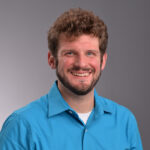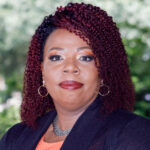Islam
Syllabi - Topic: Islam - 27 results
Select an item by clicking its checkboxA 2006 course by Jane Smith at Hartford Seminary "designed to look at the ways in which Christian and Muslim perceptions of their respective religions and their relationships to one another have evolved through history, in conflict and in concord, contributing the conceptual "theological" heritage with which Christians and Muslims operate in the modern world."
A 2011 course by Shalahudin Kafrawi at Hobart and William Smith Colleges "examines Qur'anic portrayals of Jesus, his message, and his followers" and "how Muslims interpret those portrayals in their exegetical, legal, and sufic writings" and role in interfaith relations.
A course by Omid Safi at Colgate University A 1998 course by Donald Binder at the Anglican School of Theology examines the "Acts of the Apostles, with special attention to its social context within the Greco-Roman-Jewish world of the first two centuries "is a multidisciplinary introduction both to the region conventionally referred to as the Middle East, and also to the academic discipline of Middle Eastern Studies. In other words, it is as much a study of the people, region, religion, history, and culture of the region as it is about the politics of studying that region."
A 2014 course by Mehmet Karabela at Queen's University "explores the role of religion in the politics of Muslim societies with particular attention to the modern period."
A course by Barbara von Schlegell at the University of Pennsylvania "focuses on Muslim women and the understanding of gender in Islam and in comparison with Jewish womenâs experience."
A course by Barbara von Schlegell at the University of Pennsylvania considers "the current Western view of Muslim women" as well as "translated islamic texts on gender and historical evidence of women's religious and social activities since the sixth century."
A course by Barbara von Schlegell at the University of Pennsylvania approaches "the nature of God and the hidden meanings of the Qur'an, dreams and miraculous powers, and the spiritual reality of sexual union" through Islamic mystical texts.
A course by Gisela Webb at Seton Hall University looks "will look at Islam from the point of view of Muslims' own self understanding as it has developed since the religion's origin in 7th century Arabia. We will begin the course with the study of the basic practices, beliefs, and values of Islam-including its concept of God, the universe, revelation, prophet-hood, ethics, and the afterlife. We will look at how religious devotion is expressed through art, poetry, and mysticism." Contemporary issues in American Islam will also be studied.
A 2008 course by Nasser Rabbat at MIT "introduces the history of Islamic cultures through architecture. Religious, commemorative, and educational structures are surveyed from the beginning of Islam in 7th-century Arabia up to the present."
A course by Lance Laird at Boston University aimed at cultivating "a critical and empathetic understanding of how Muslims practice healing informed by and in conversations" with Islam.
A 1998 course by Amir Hussain at California State University-Northridge examines "some of the relationships between 'Islam' and 'the Modern World'" with special attention to major reformers, Feminism, radicalism, and Islam in the U.S. and Canada.
A course by Barbara von Schlegell at the University of Pennsylvania the origins, theology, practices, and traditions of Islam. Islam in America is treated as well.
A 2011 course by Shalahudin Kafrawi at Hobart and William Smith Colleges "discusses Qurâanic views regarding the meaning of Islam and Qurâanic treatment of various forms of peace including liberation, justice, equality, submission, freedom, and tolerance, as well as those of violence including war, self-defense, killing, suicide, sacrifice, and punishment" with attention to historical origins of teachings and contemporary issues.
A 1998 course by James Morris at the University of Exeter offers "a broad introduction to the recurrent religious themes (in myth and ritual, belief and practice) and alternative paradigms of religious interpretation and authority that underlie the manifold expressions of Islam in the most diverse historical and cultural domains."
A 1997 course by Glenn Yocum at Whittier College introduces students to "the basic norms of Muslim belief and practice . . . (and) the history of Islam" in diverse settings with special attention to gender roles.
A 2007 course by Chad Bauman at Butler University provides a "basic introduction to the scriptures, history, thought, practice, and diverse expressions of the Islamic tradition."
A 2002 course by Daniel Varisco at Hofstra University surveys "the origins and early history of the Islamic faith, with an emphasis on the role of Muhammad as Prophet and the revelation of the Quran."
A 2005 course by Roxanne Marcotte at the University of Queensland examines "Islam during the 19th and 20th centuries through the works of Muslim writers and their responses to the ever-changing contemporary world."
A 2012 course by Ahmed Abdel Meguid at Syracuse University "is an in-depth study of the main epistemological systems and theories of hermeneutics that were developed in the Islamic intellectual tradition."
A course by Michael Sells at Haverford College on Arabic literature with special attention "to the relationship of the Qur'an to Islamic theology, Islamic philosophy, Arabo-Islamic music, and other forms of Islamic culture."
A 2005 course by Ahmed Afzaal at Connecticut College attends to "those specifically religious beliefs, rituals, ethical precepts, and spiritual practices that are believed to have been originated with the Prophet Muhammad himself, or that originated and/or developed among the subsequent generations of his followers, before gaining wide acceptance among Muslims."
A 2013 course by Josie Hendrickson at the University of Albera "explores theories of pilgrimage and ritual, Islamic law, Muslim and non-Muslim travellers' accounts, and the history as well as economic , artistic, political, social, and religious dimensions of the hajj."
A 2011 course by Aisha Musa at Florida International University introduces "students to the history, interpretation and translation of the Quran, through a close examination of passages relating to issues of gender and jihad from a variety of English translations."
A 2005 course by Rudra Vilius Dundzila at City Colleges of Chicago is an "interdisciplinary survey of significant intellectual and artistic achievements of non-Western cultures through selected works of literature, philosophy, visual art, music and other performing arts."
A 2020 course by Peter Gottschalk at Weslyan University "endeavors . . .To understand the dynamics of specific Islamic movements;. . . To appreciate the diversity among Muslims and their socio-political contexts; and. . . To critically explore and question the meaning of 'modernity' and consider the possibility of multiple modernities."

